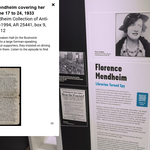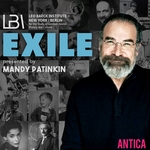Film Scholar Noah Isenberg Will Always Have Casablanca

- Author
- Annedore Wilmes
- Date
- Fri, Mar 3, 2017
Noah Isenberg, director of screen studies at The New School and a member of the LBI’s Academic Advisory Board, is the author of a new history of the iconic film Casablanca that focuses on the role of refugees from Nazi-occupied Europe in the making of the film. LBI News spoke to Isenberg about his research.
How many times have you watched Casablanca?
I suspect I may have surpassed the one hundred mark, possibly close to one hundred and fifty at this point. The odd thing, I never tire of it; somehow, I’m not sure how, it remains fresh each time.
What does it mean for a movie like this that large parts of its cast were themselves refugees?
It simply wouldn’t be the same film without the deep cast of refugee actors playing refugees—or, in some cases, Nazis—on screen. They’re what gives a film that was made on the sound stages and back lot of Warner Bros., in Burbank, California, a striking sense of authenticity. Their accents, their gestures, and manners endow the film not only with a Middle European charm, but with the immediacy of the refugee story that these actors, and their own life stories, help to convey.
You write that “to tell the story on the Hollywood screen in 1942, these refugees would have to be stripped of any obvious ethnic or religious affiliation.” How and when did the cinematic representation of Jewish lives become more explicit?
In Hollywood, from the decades that separate The Jazz Singer (1927) and Gentleman’s Agreement (1947), you really don’t have any overt reference to Jews on screen. There are plenty of subtle intimations, like those you have in Casablanca, but nothing direct or unambiguous. And it takes another decade or so for movies to address the issue of Nazi persecution of the Jews during the war. Audiences may not have been ready for it in the early 1940s, and regardless, the censors—both the Production Code Administration and the Office of War Information—likely would have prevented explicit reference to Jews in a film likeCasablanca. Among the reams of studio memoranda that I read, I never encountered a single mention of this question of how Jewish refugees should be depicted.
Tell us about your encounters with the descendants of those who worked on the film.
I live in the same neighborhood of Brooklyn as Anya Epstein, granddaughter of Philip Epstein and grandniece of Julius Epstein, the twin brothers who co-wrote the Academy Award-winning screenplay with Howard Koch. Anya and I met for coffee a couple of times while I was working on the book, and I interviewed her about the family legacy. She is a highly accomplished television writer, whose credits include Homicide and In Treatment, but she long felt that she could never go into screenwriting because of the crippling pressure that came with it, knowing what her grandfather and great uncle were able to achieve.
Her own father, Leslie Epstein, is also an acclaimed novelist and head of the graduate writing program at Boston University. He and I also spoke about the legacy that he carries in his own work, some of which draws on the very story of Casablanca.
What is your favorite scene in the movie?
One of my favorite scenes, which sets the tenor for a central chapter of the book, is the short exchange between the elderly couple, Herr and Frau Leuchtag, played by the Austrian and German-born refugee actors Ludwig Stössel and Ilka Grüning, en route to America. When they rehearse their wooden English for Carl the waiter (S.Z. Sakall), they open a small window onto the refugee experience, shown in a comedic light but enormously poignant nonetheless.





